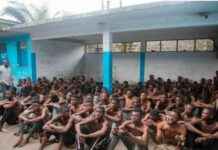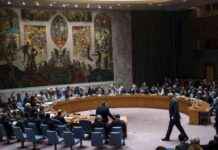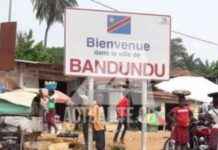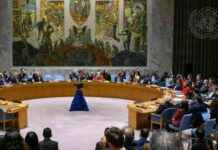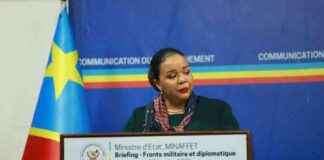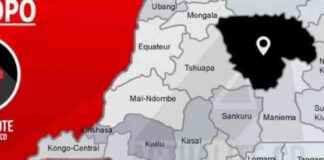Rwanda 2026 Handball Competition: DRC Requests Venue Change
The Democratic Republic of Congo (DRC) is making headlines in the world of handball as it announces its intention to boycott the upcoming Men’s African Nations Cup (CAN) scheduled to be hosted by Rwanda in January 2026. This bold stance was clearly articulated in a statement released by the Congo Handball Federation (FEHAND) on Friday, February 21.
In the statement, FEHAND emphasized the DRC’s long-standing presence and prowess in the sport of handball, contrasting it with what they perceive as a lack of experience on Rwanda’s part. The federation expressed concerns about the security situation in their country, particularly in the East, attributing it to actions by a neighboring country that has been explicitly identified by United Nations experts. This has led them to take a firm stance against participating in the 27th edition of the Men’s African Nations Handball Cup, a qualifier for the World Cup, set to take place in Kigali.
FEHAND President Amos Mbayo further called for an immediate meeting of the African Handball Confederation (CAHB) to address the issue of Rwanda hosting the tournament and the possibility of relocating it to a neutral country. The president highlighted the federation’s protest against what they perceive as aggression and genocide against the Congolese people, underscoring the importance of defending national integrity and sovereignty. The federation is adamant about not endorsing what they describe as an invasion by Rwanda, which they believe has serious implications for the tranquility of sports.
The request for a venue change stems from FEHAND’s desire to maintain a principled position amidst the current geopolitical challenges facing the region. By appealing to the president of CAHB for a prompt council meeting to deliberate on the matter, the federation hopes to uphold its values and safeguard the interests of its team, the Leopards, in light of the complex dynamics at play.
It is worth noting that just last year, the DRC hosted the 26th edition of the Women’s African Nations Handball Cup, showcasing their ability to organize successful tournaments. The event culminated in a thrilling final match between Angola and Senegal, with Angola emerging victorious to claim the title.
As the handball community awaits further developments on the DRC’s stance and the potential venue change for the upcoming tournament, the sport continues to serve as a platform for both athletic competition and diplomatic discourse. The implications of these decisions extend beyond the realm of sports, reflecting larger geopolitical realities and the intersection of sportsmanship with international relations.
The DRC’s decision to challenge the status quo in handball competitions underscores the complex interplay of factors that shape sporting events and the broader narratives they embody. As the situation unfolds, the handball world watches with bated breath to see how this chapter in the sport’s history will ultimately unfold in the coming months.




